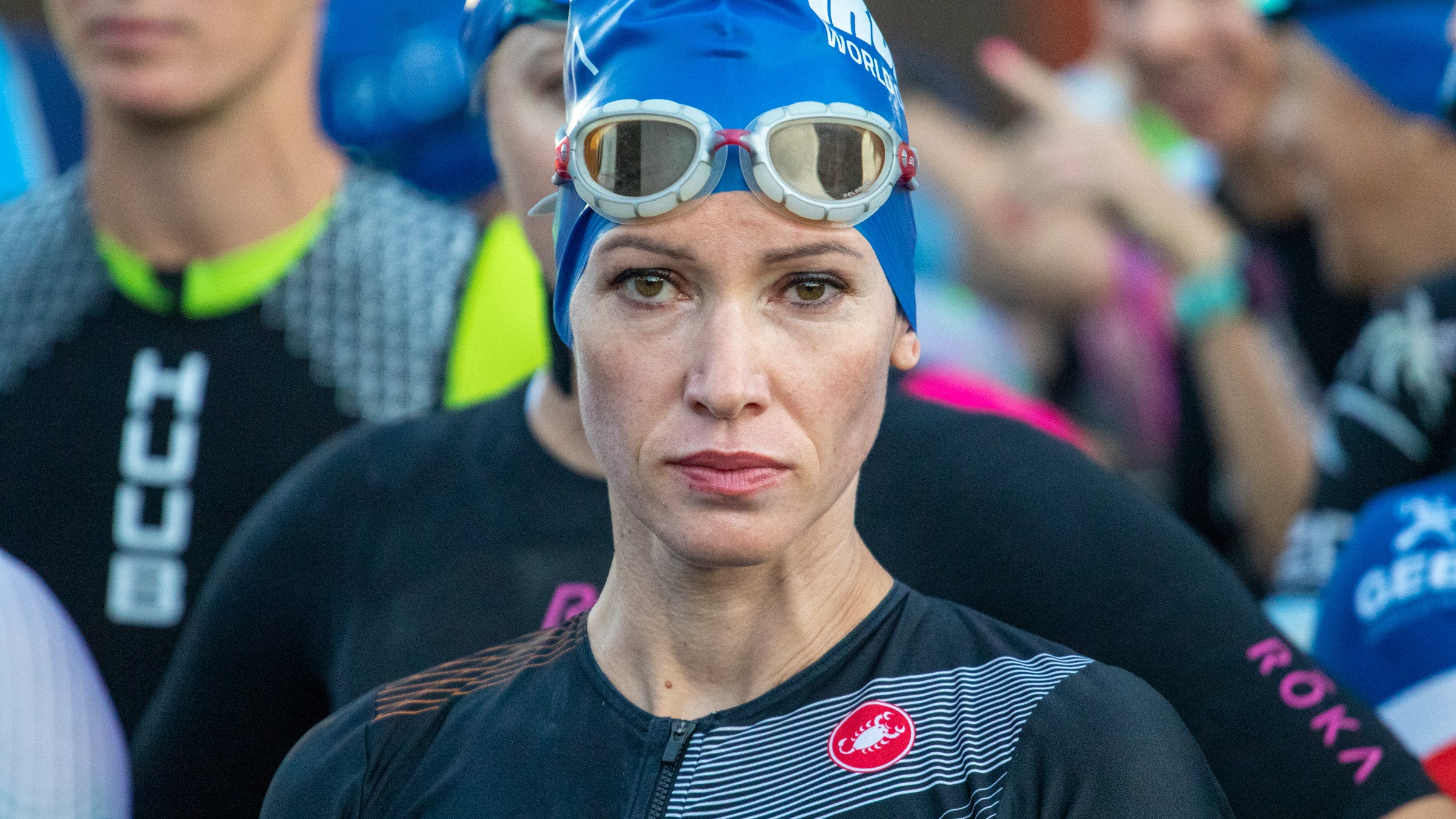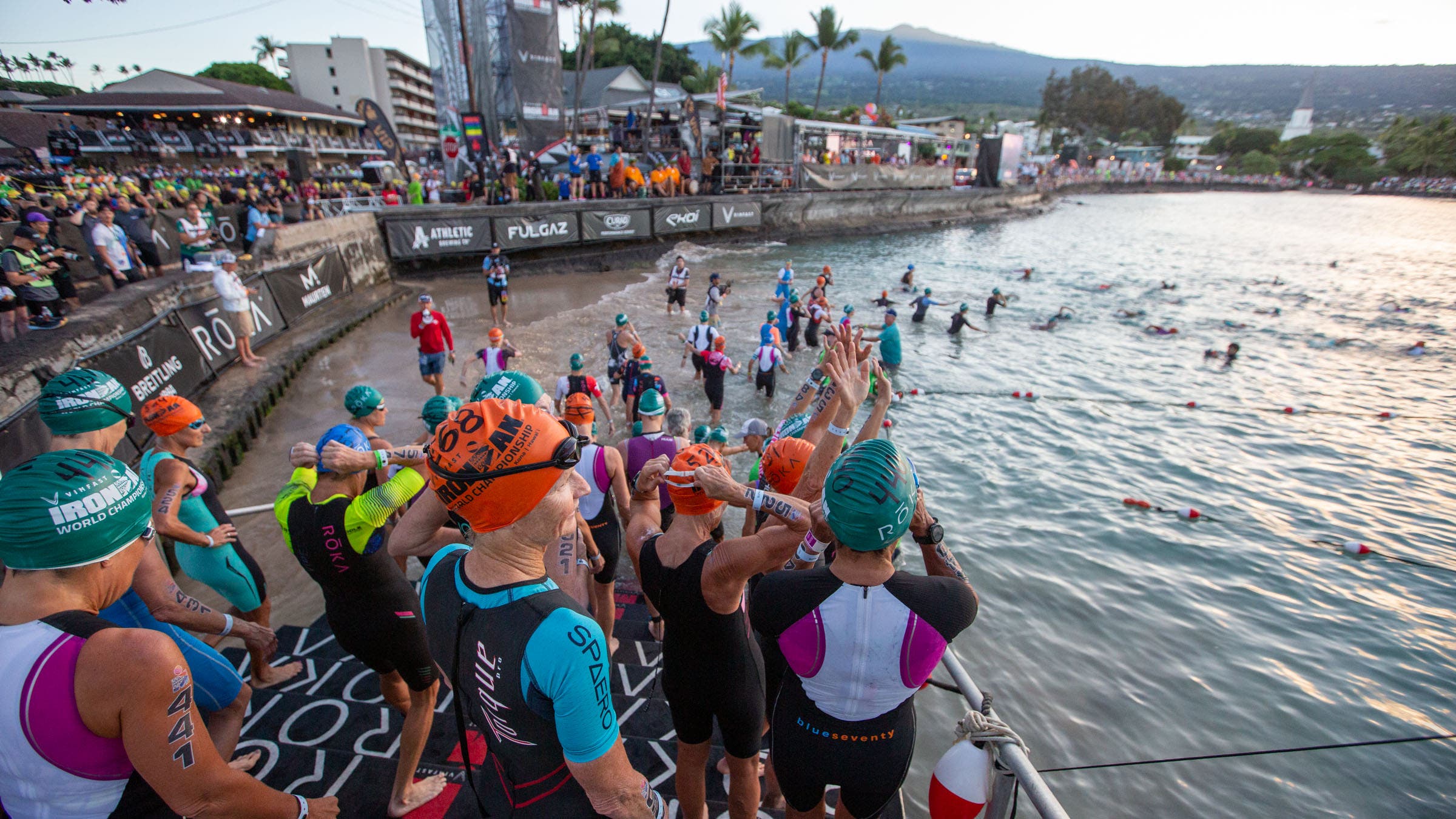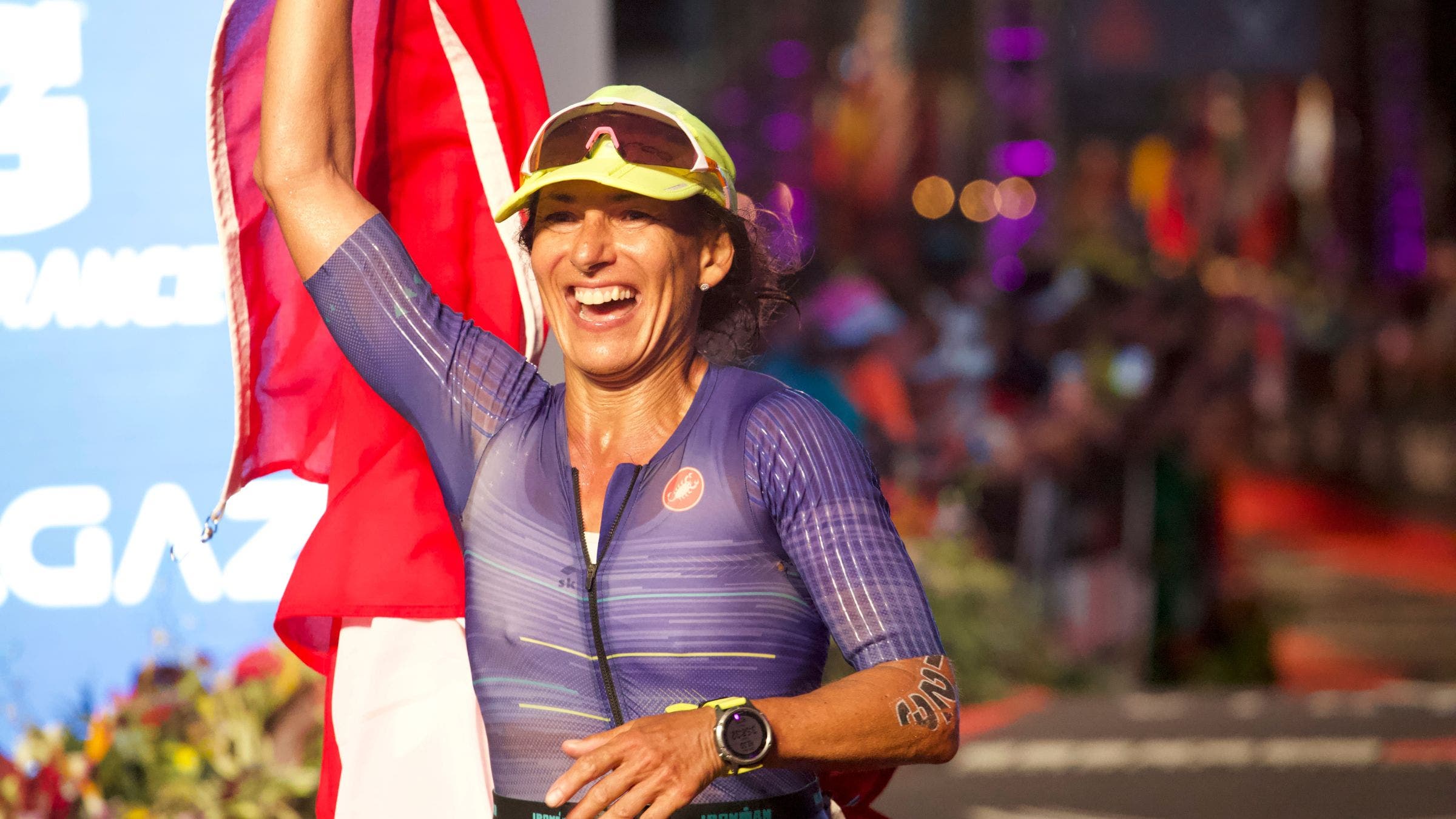After Joy of Women's-Only Ironman World Championship, Grief Sets In

The Ironman world championship has made a lot of progress in the last three years of women’s-only racing. Now it must avoid a setback. (Photo: Brad Kaminski/Triathlete)
There was something about this year’s Ironman World Championship week in Kona that felt sad.
Don’t get me wrong – the final edition of the women’s-only championship event was empowering and inspiring and all the things we knew it would be, based on the past three years of having race day all to ourselves.
It was a refreshing change from the way it had always been done, which was a shared race where male athletes were centered via a higher number of qualifying slots, earlier start waves, and more airtime on the race broadcast.
But as I talked to women around the island over the week, there was also a sense of heartache.
I couldn’t quite place my finger on it until someone – and it is worth pointing out that this someone was a man – said to me: “You’ve had three years of your own race. You women should be grateful you even had this experience.”
There’s a lot to unpack there: a man telling women what they “should” be feeling, the use of the dismissive “you women,” the insistence we should be grateful for having tasted equality in our sport, only for it to be taken away.
Suddenly, things started to click into place. Going from progress to setback is a hard thing to experience, in sport and in life.
The efforts for equality on triathlon’s biggest stage – first for the pro athletes, then for the age-groupers – made great progress in centering women’s racing. For the last three years – four, if you count the 2022 women’s-focused race (with a few men’s age-groups thrown in) on the two-day, two gender format – women got their day to shine.

Women, who are almost always outnumbered by men in other race venues, could gather with other women. There was dedicated coverage of the most powerful, inspiring women in the sport doing powerful, inspiring things. There was a jubilant sense of community that only happens when women feel safe to truly be themselves, exactly as they are.
That was still very much the vibe this week, but there was also a collective sense of grief. Many women shared with me how they’re sad about losing this special experience, where for one week, their race, their effort, and their story were the only things that mattered.
“There’s something pretty special about looking around and seeing all the women around you choosing to do the hardest thing they could find,” Victoria Feng, an age-group athlete from California, told Triathlete this week.
USA Triathlon CEO Vic Brumfield echoed that sentiment: “It’s just really fun to drive down Ali’i Drive and see all these badass women running with men chirping behind them on a bike or trying to keep up, like riding their wheel. I love that. It’s a flip of a narrative that we haven’t seen as the forward-facing story. And that’s just fun for me, because it makes me feel like there’s hope for more women in the sport at every level and every distance.”
Before the race, 2024 Ironman world champion Laura Philipp told Triathlete she was savoring the last bits of this unique, women-centered event: “I told myself to really enjoy this. It’s the last time we’ll have the women here by ourselves. Having the whole focus on us – it feels incredibly special.”
Like so many women on the Big Island this week, she also has fears of going back to the way things were. “When I watched the men’s race in Nice last month, it was so entertaining,” she said. “But I kept thinking, how could anyone possibly cover both races at once? The dynamics are so complex. I can’t imagine we’d get the same attention if it were combined.”

That sentiment pervades the concerns women have about going back to a one-day race shared with men in 2026. Ironman has not yet revealed the exact gender composition of the field, only that they’re using a new method of distributing slots.
To date, Ironman has not provided data on the initial races using this system, so it is not possible to ascertain whether the system yields what Ironman’s initial modeling predicted: a 2026 field skewed slightly more to current female participation numbers, with an approximate 65% male to 35% female split.
Regardless, Kona 2026 will be a majority-male race. The attention of fans and media coverage will be split between the men’s and women’s races. The expo and merchandise tent will not be filled with women’s merchandise as it has been.
And when we drive down Ali’i during race week, it will be mostly men that we see – “fairness of slot distribution in proportionality” aside, the cold, hard numbers will create this reality. No one can argue otherwise.
Ironman’s decision is a reversal of their previously stated commitment to providing men and women with separate races and broadcasts. Now, it must carry the weight and responsibility of their decision to revert back to a one-day, mixed-gender race in a way that doesn’t feel like we’re going backwards. Going back to one day with two genders is their choice, not an act of God nor a government mandate.
CEO Scott DeRue told Triathlete the decision was made based on data that revealed the women’s-only race did not bring more women into the sport. But Ironman also released a statement this year noting “promising growth with a 10% increase in female participation in long-distance Ironman events from 2024 to 2025, globally.”
Furthermore, women’s overall participation in triathlon is, in fact, increasing: According to research by SheRACES and FundHerTri, a global estimate of female participants in triathlon for 2024 rose to 37% of total participants, up from 32% in 2023.
Even if those stats didn’t exist, three years – particularly three years following a global pandemic that disproportionately affected women – is not enough time for massive change to take root. Even expert coaches recommend a gradual, years-long build-up to transform from entering triathlon as a beginner to racing Ironman, and naturally it often takes even longer to become fast enough to qualify for the world championship. Those who started during the women’s-only era, with the goal of qualifying for a women’s-only championship race, could be feeling a bit like Charlie Brown whiffing at a football that got pulled away.
Yes, “you women should be grateful” for the last three years. But I’d caution anyone – men in particular – against telling women what they “should” feel right now, and instead let them say what they’re thinking and feeling. The experience of women matters.
We’ve made a lot of progress in the last three years. If we want to avoid a setback, we must acknowledge there are important lessons to be learned. Instead of telling women what they “should” do, it’s imperative – for us and for the health of the sport – to follow their lead.